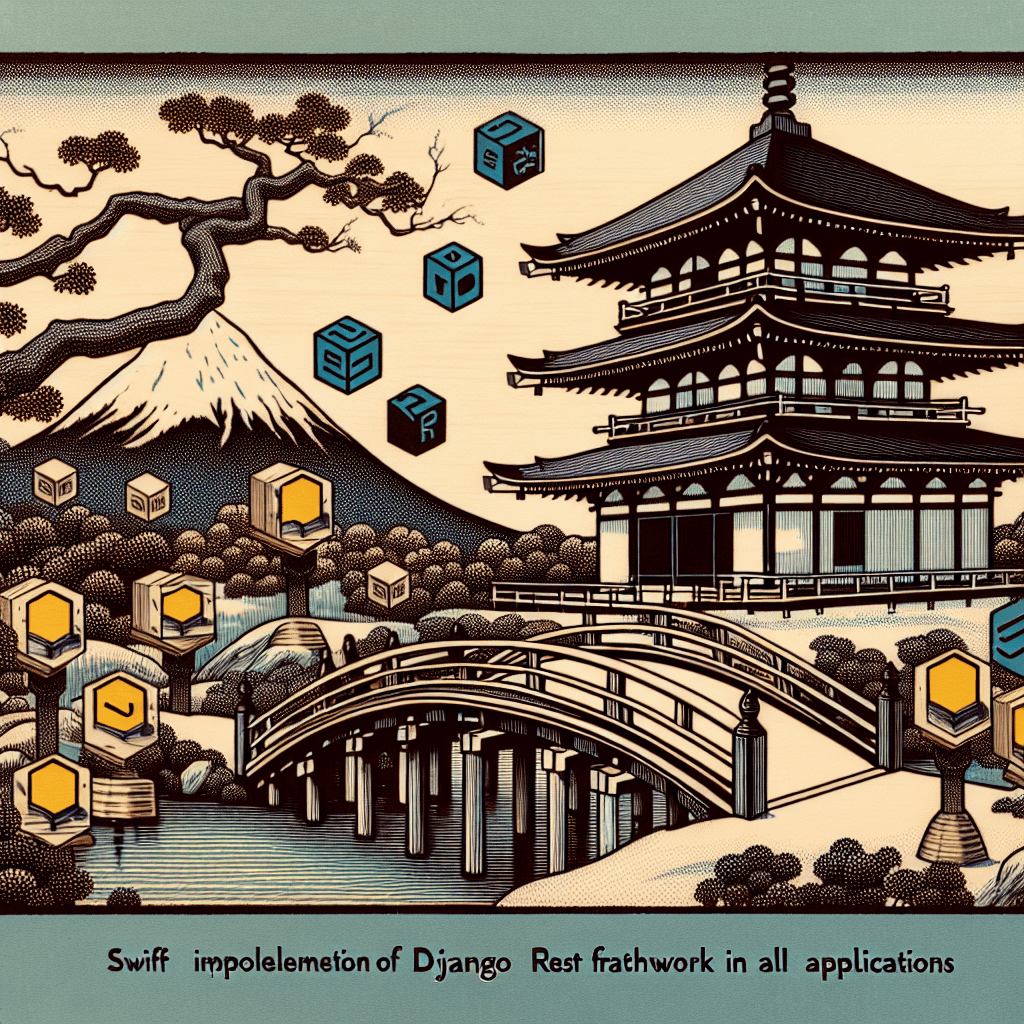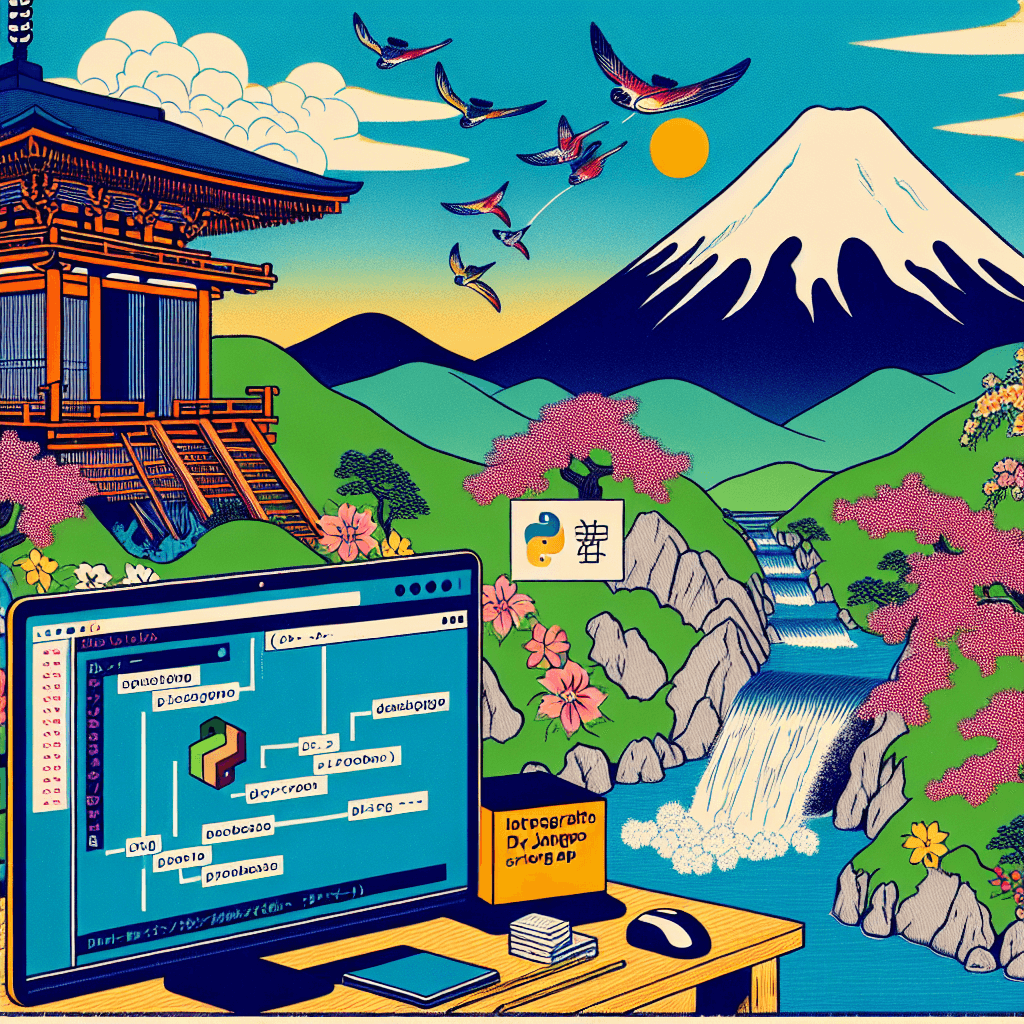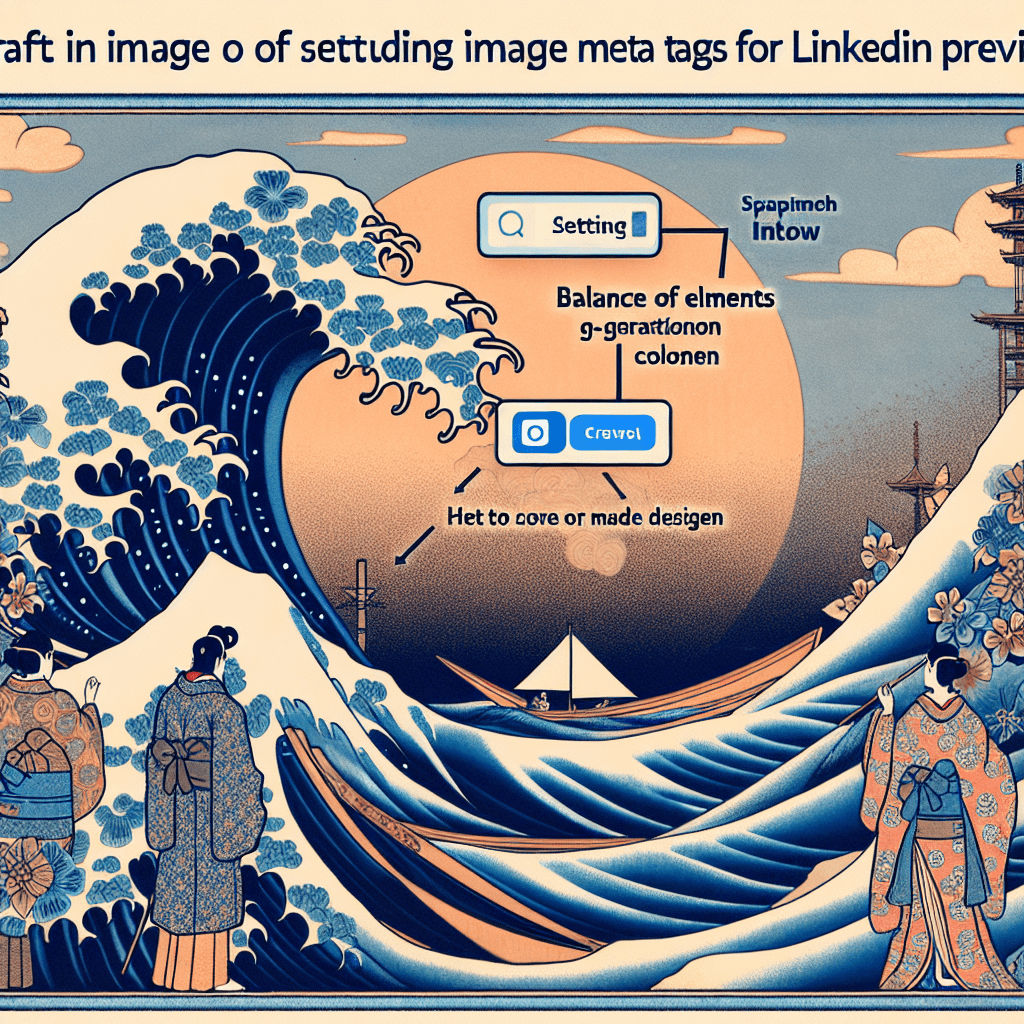Rapid Deployment of Django Rest Framework Across All Apps with Models and Securing API Endpoints
syndu | Oct. 11, 2023, 2:19 p.m.

Rapid Deployment of Django Rest Framework Across All Apps with Models and Securing API Endpoints
Hello, dear readers. Today, I'm going to share with you a shortcut that will allow you to rapidly deploy Django Rest Framework across all your apps which have models, as well as secure the API endpoints before they are written with a CSRF check and for authenticated users.
Step 1: Install Django Rest Framework
First, ensure that Django Rest Framework is installed in your project. If not, you can install it using pip:
pip install djangorestframeworkStep 2: Create a Base Serializer and ViewSet
Next, we are going to create a base serializer and viewset that we can reuse across all our apps. This will save us a lot of time and ensure consistency across our project.
In your main app directory, create a new file named base.py and add the following code:
from rest_framework import serializers, viewsets
from rest_framework.permissions import IsAuthenticated
from django.contrib.auth.decorators import csrf_protect
class BaseModelSerializer(serializers.ModelSerializer):
class Meta:
model = None
fields = '__all__'
@csrf_protect
class BaseViewSet(viewsets.ModelViewSet):
permission_classes = [IsAuthenticated]
serializer_class = BaseModelSerializer
Step 3: Create Serializers and ViewSets for Each App
Now we are going to create serializers and viewsets for each app that has models. We can do this by iterating over all installed apps and checking if they have a models module.
In your base.py file, add the following code:
from django.apps import apps
for app in apps.get_app_configs():
if hasattr(app, 'models_module'):
for model in app.get_models():
class Meta(BaseModelSerializer.Meta):
model = model
globals()[f'{app.label.capitalize()}ViewSet'] = type(f'{app.label.capitalize()}ViewSet', (BaseViewSet,), {'queryset': model.objects.all()})
Step 4: Register ViewSets in URLs
Finally, we need to register our viewsets in our URLs. We can do this by creating a router and adding our viewsets to it.
In your urls.py file, add the following code:
from rest_framework.routers import DefaultRouter
from .base import *
router = DefaultRouter()
for app in apps.get_app_configs():
if hasattr(app, 'models_module'):
for model in app.get_models():
router.register(rf'{app.label}/{model.__name__.lower()}', globals()[f'{app.label.capitalize()}ViewSet'])
urlpatterns = router.urls
Step 5: Implementing Search Functionality
To implement search functionality similar to the admin definitions, we can use Django's SearchFilter. Add the following lines to your BaseViewSet:
from rest_framework.filters import SearchFilter
class BaseViewSet(viewsets.ModelViewSet):
# ...
filter_backends = [SearchFilter]
search_fields = ['=name'] # Adjust this to your needs
And there you have it! With this setup, you can rapidly deploy Django Rest Framework across all your apps which have models, and secure the API endpoints before they are written. Remember to adjust the search_fields to match the fields you want to search in your models.
Please note that this is a very basic setup and might not cover all your needs. However, it should give you a good starting point and save you a lot of time.








